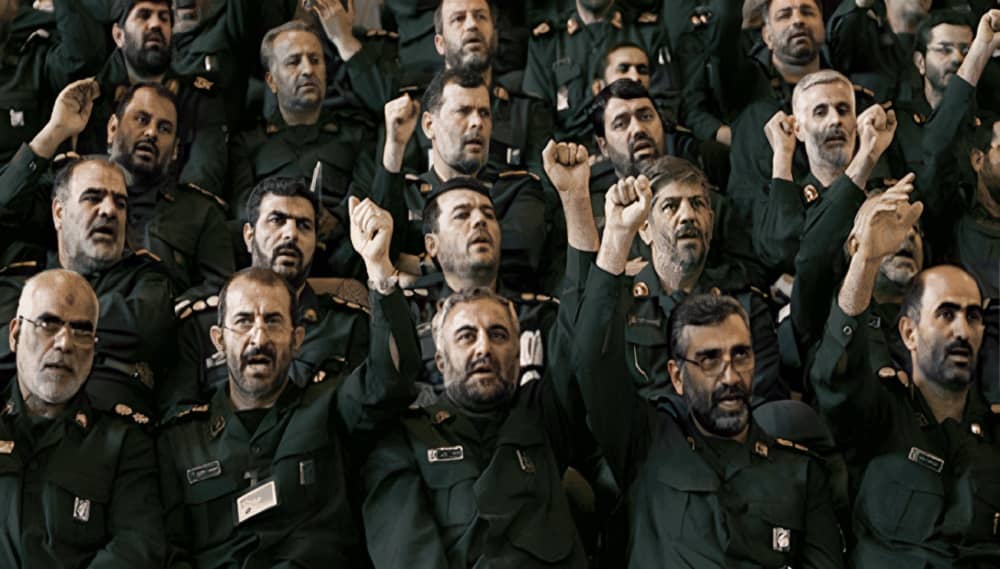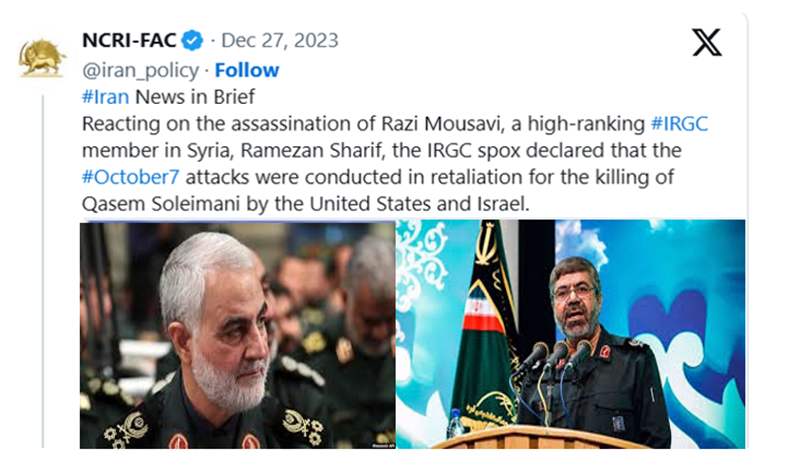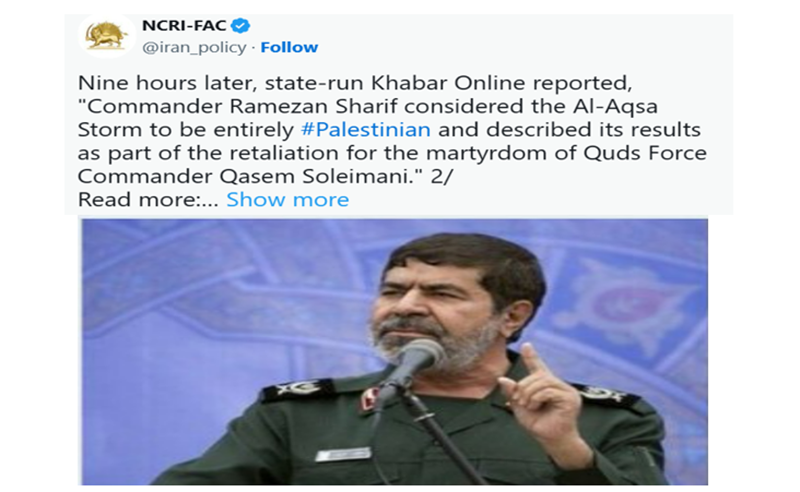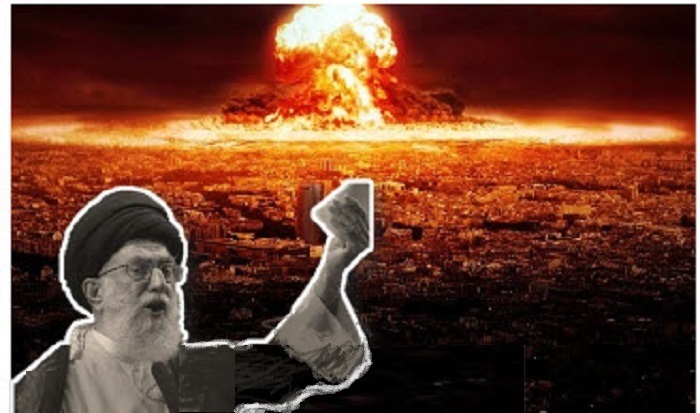
The initial reports of Mousavi’s death sparked widespread joy among Iranians, exposing a societal sentiment that challenges the regime’s military-security narrative.
General Ramezan Sharif, the official spokesperson for the IRGC, swiftly took center stage, vowing revenge and linking the October 7 attacks against Israel to the killing of Qassem Soleimani by the United States and Israel. This move triggered a global media controversy, posing potential challenges for Western nations hesitant to acknowledge Tehran’s involvement in conflicts.

However, within a mere 12 hours, Tehran underwent a notable shift in rhetoric. Sharif and his superiors retracted their aggressive stance, emphasizing that seeking revenge for Soleimani’s death would mean the complete destruction of Israel a statement seemingly designed to temper political consequences. This tactical maneuver provided relief for those inclined to appease, both domestically and internationally. As the 48-hour media cycle unfolds, deeper layers of significance emerge.
While the Iranian regime has a history of bellicose rhetoric, recent events shed light on the regime’s internal struggles, including a restless society, a demoralized follower base, and a marginalized elite. These challenges drive Ali Khamenei to engage in risky behavior, posing threats to peace and stability beyond Iran’s borders.

Iran’s adept use of duplicity, employing soft-speaking diplomats and lobbying efforts, serves to manipulate global perceptions. Despite diplomatic maneuvers, undeniable facts reveal Iran’s sponsorship of terrorism, involvement in global conflicts, and orchestration of numerous terrorist attacks worldwide a reality with far-reaching consequences on the global stage.
Despite facing persistent uprisings, the regime continues its oppressive tactics, prompting a call for world leaders to scrutinize actions over rhetoric. Understanding the harsh realities behind Iranian state officials’ words becomes imperative in navigating the complexities of dealing with Iran on the global stage.


MEK Iran (follow us on Twitter and Facebook), Maryam Rajavi’s on her site, Twitter & Facebook, NCRI (Twitter & Facebook), and People’s Mojahedin Organization of Iran – MEK IRAN – YouTu







